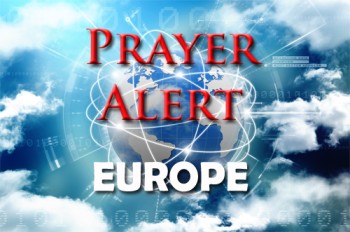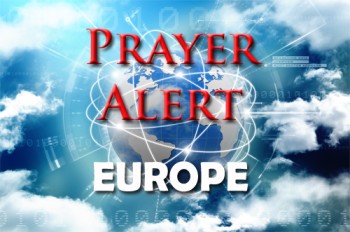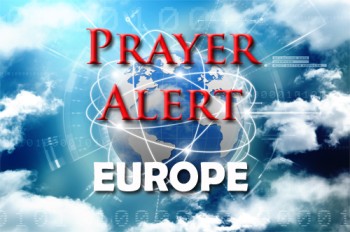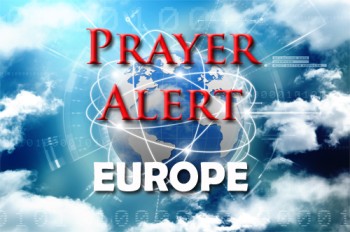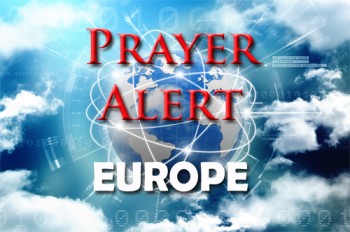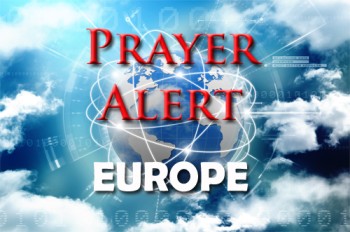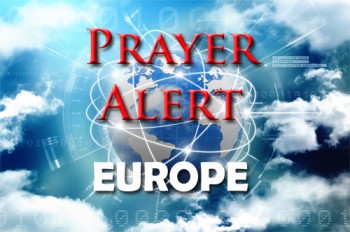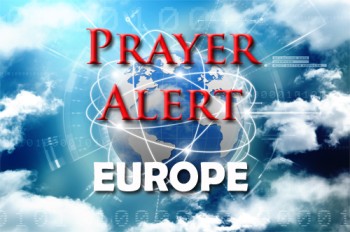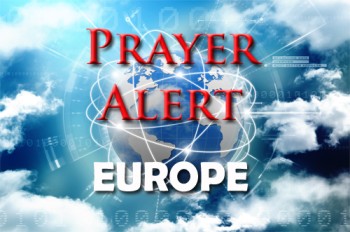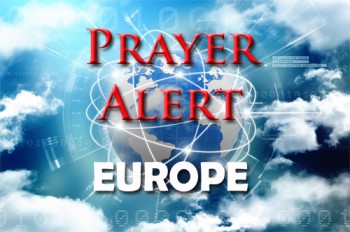Displaying items by tag: Europe
Russia: 20+ killed in terrorist attacks
At least twenty people have been killed in a series of shootings in Dagestan on 24 June. The attacks targeted a synagogue, an Orthodox church, and a traffic police post. Among the victims were fifteen law enforcement officers and civilians, including an Orthodox priest. The synagogue and church were set on fire before the attackers fled. The authorities say that five gunmen were later shot dead, and two sons of a local district head were arrested. The regional governor called it a ‘day of tragedy’ and declared three days of mourning in the predominantly Muslim region. Russia's national anti-terrorism committee attributed the attacks to ‘terrorists’, though no group claimed responsibility. This incident follows a major attack on a concert hall in Moscow three months ago, which killed 145 people.
Cyprus / Israel / Lebanon: Hezbollah leader threatens wider conflict
Hezbollah leader Sayyed Hassan Nasrallah has warned that no place in Israel would be safe if a full-scale war erupts between the two foes, also threatening Cyprus and other Mediterranean regions. Hezbollah has released drone footage of sensitive Israeli military sites; Nasrallah says that it has a ‘bank of targets’ for precision strikes, and Israel must prepare for attacks by land, air, and sea. He also threatened Cyprus, accusing it of aiding Israel with its airports and bases for military exercises. There was no immediate response from Cypriot authorities; Cyprus has historically allowed Israel to use its airspace for drills, but not its land or bases. In another development, Benjamin Netanyahu has dissolved his war cabinet after two of his opponents resigned from it: see
Netherlands: prime minister to become new NATO head
Dutch prime minister Mark Rutte is set to become the next NATO secretary-general after Hungary lifted its veto, following a letter from Rutte to Viktor Orbán. The letter promised Orbán that, as NATO head, Rutte would not deploy Hungarian troops or use its funds to support Ukraine. The current secretary-general, Jens Stoltenberg, says the selection process will conclude ‘very soon’. Orbán posted the letter on social media, confirming Rutte’s commitment to the agreement. Rutte acknowledged past remarks which had caused dissatisfaction in Hungary and reassured Orbán of his respect for the deal made between Stoltenberg and Orbán in Budapest. His confirmation depends on consensus among all NATO members; with the veto lifted, he is now poised to succeed Stoltenberg.
Europe: big swing to far-right in EU elections
Following the European Parliament election, the European People's Party (EPP) has secured 184 seats, a quarter of the 720-member chamber. Far-right groups also made significant gains. The centre-left Socialists and Democrats remained stable, but the liberal Renew Europe group suffered significant losses. EPP leader Manfred Weber emphasised the party's alignment with industry, rural areas, and farmers. The party might form a coalition with socialists and liberals or negotiate with right-wing parties without alienating centrists. Far-right parties like France's National Rally and Italy's Brothers of Italy made notable strides, while Spain's Vox party lost ground to a new far-right party. If unified, the far right would be the second-largest force in Parliament. Ursula von der Leyen's re-election prospects as Commissioner are uncertain, as she needs full support from the three centrist groups.
France: Macron says he will win snap election after European defeat
Emmanuel Macron has said he intends to win the snap legislative election he called after his allies' significant defeat to Marine Le Pen's far-right National Rally (RN) in the European Parliament elections. He has dismissed claims that dissolving parliament was reckless, potentially empowering the far right and hindering his domestic policy agenda. He stated that his decision was in France's best interests, and urged citizens to vote. The RN secured about 32% of the vote, compared to the 15% garnered by Macron's allies (almost the same percentage as the Socialists). However, he expressed confidence that a national election would be very different, pointing out that politics is dynamic and opinion polls are unreliable. He stated that the president's role is crucial for the republic, institutions,and Europe, and his position is secure regardless of the election outcome - even though the RN would probably call for his resignation if it won.
Switzerland: parliament rejects human rights decision
Swiss women, known as ‘climate seniors’, who won a historic ruling on climate change from the European Court of Human Rights (ECHR), feel shocked and betrayed by their own parliament's decision not to comply. The women argued that Switzerland's inadequate response to climate change has harmed their health and life. The ECHR agreed, ordering Switzerland to intensify its efforts to reduce greenhouse gas emissions. Despite the ruling being binding, the parliament voted to reject it, claiming the country already has an effective climate strategy. The parliamentary debate was emotional, with right-wing politicians criticising ‘foreign judges’ and Green Party members calling the discussion ‘shameful’. Switzerland, although sensitive to global warming, is not on track to meet its Paris Climate Agreement goals. Public opinion is divided; many Swiss object to the ECHR involvement, believing current measures are sufficient. The final decision on compliance rests with the government, which may present its existing measures to the ECHR in hopes of satisfying the court.
Ukraine: Biden, China not to attend peace summit
Joe Biden will not be at the Ukraine peace summit in Switzerland on 15 and 16 June; instead, vice-president Kamala Harris and national security advisor Jake Sullivan will attend. The decision comes despite Biden’s attendance at France's D-Day anniversary celebrations and a G7 meeting in Italy in the next few days; on 15 June he will be at a Hollywood fundraising event. However, the White House stated that no other national leader had done more to support Ukraine’s sovereignty and peace. Over a hundred countries have promised to attend the summit, but some key states - notably China - have decided not to do so because Russia has not been invited. Volodymyr Zelensky criticised these decisions, and stressed the importance of Biden's presence for influencing other leaders. Meanwhile, Russian dissident Boris Kagarlitsky has been sent back to prison after only two months of freedom for his continuing opposition to the war. See
Fake news ahead of EU elections
Ahead of the EU and UK elections, false claims about immigration are spreading, particularly on social media. One Facebook post says that nearly 97% of Spain’s minimum basic income recipients are immigrants. In reality, official data show that 82.4% are Spanish nationals and only 17.6% foreigners. Elsewhere, Dutch far-right activist Eva Vlaardingerbroek has said that most residents of Amsterdam, Brussels, and London are immigrants, whereas official statistics contradict this. Immigration remains a significant issue in Europe, influencing voter sentiment and political strategies. A recent poll reveals that half of Europeans disapprove of the EU’s migration policies, wanting stricter border controls. Some national governments have adjusted their immigration policies in response.
Ukraine: Sweden and other EU countries pledge further military support
The Swedish government has announced a $1.23bn military aid package to Ukraine, including air defence systems, artillery ammunition, armoured vehicles, and two Swedish-made early-warning planes. This aid is crucial as Ukraine faces delays in receiving Western military assistance during Russia's third year of invasion. EU defence ministers have met in Brussels to bolster military support for Ukraine; a number of countries have pledged extra aid, including 30 F-16 fighter jets from Belgium and air defence missiles from Spain. However, approximately 6.5 billion euros ($7bn) in EU military aid remains blocked by Hungary, regarded as Russia’s staunchest ally in Europe. Meanwhile, US secretary of state Antony Blinken is visiting NATO allies in Europe to reinforce support for Ukraine, starting with a visit to Moldova on 29 May.
Green MEPs threaten to oppose von der Leyen’s bid for re-election
Green members of the European Parliament will oppose Ursula von der Leyen's bid for a second term as president of the European Commission if she aligns with hard-right nationalists, according to Terry Reintke, German Green MEP chair. Reintke stated that her group would ‘absolutely’ not support von der Leyen if she made a deal with the European Conservatives and Reformists (ECR), which includes Italian prime minister Giorgia Meloni's group. She said that an alliance with the ECR, known for opposing EU green policies, would jeopardise the EU's climate action plans, potentially stalling or halting the Green Deal; this would be disastrous for both the climate and Europe's economic competitiveness against the USA and China. This announcement adds to von der Leyen's challenges, as the centre-left has also pledged not to support her if she collaborates with hard-right parties. To secure a second term, she needs an absolute majority of the 720 MEPs in the new parliament, requiring a broad coalition beyond her centre-right European People’s Party (EPP), which is expected to win around 175 seats.
